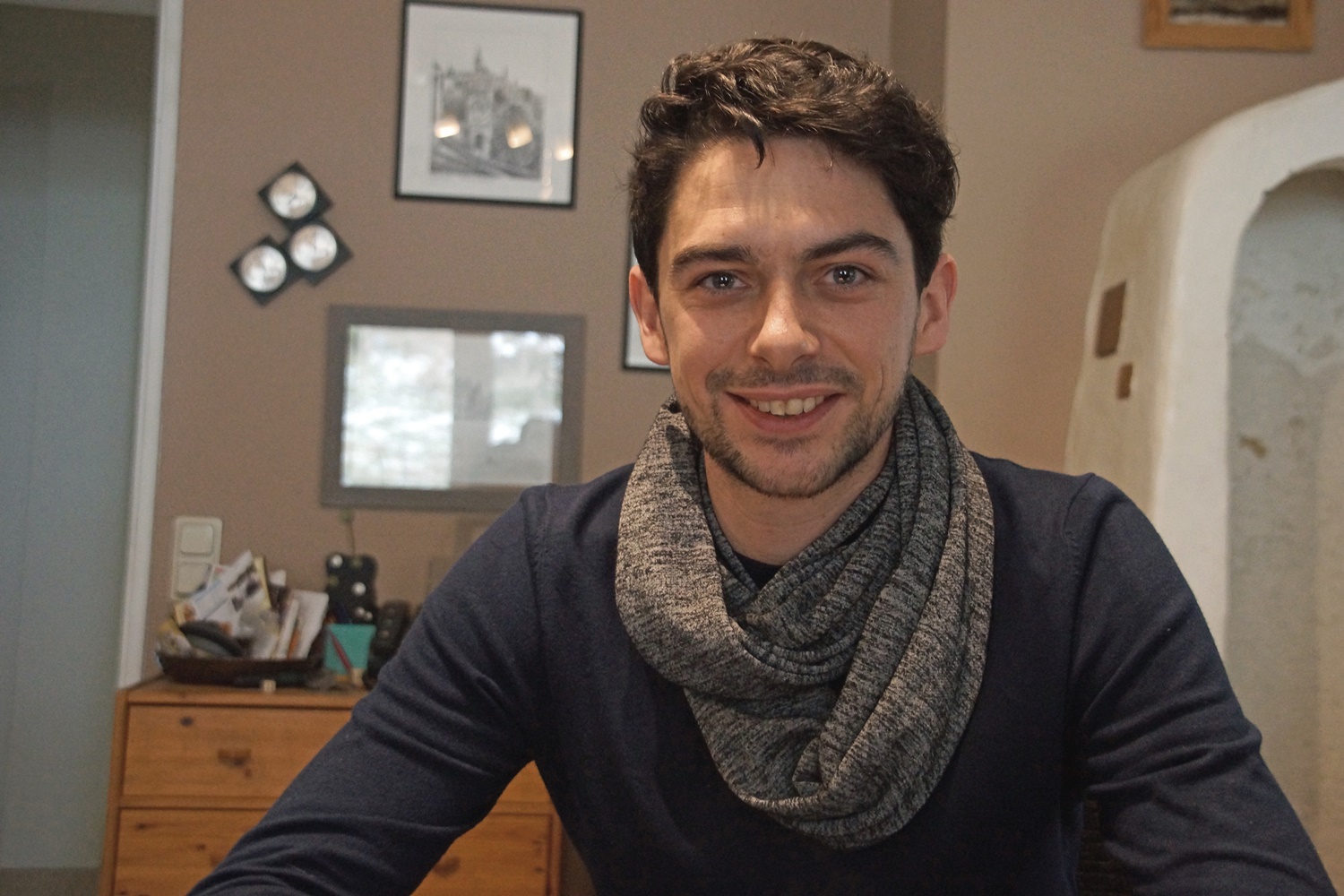BACK TO RESEARCH WITH IMPACT: FNR HIGHLIGHTS
BACK TO RESEARCH WITH IMPACT: FNR HIGHLIGHTS

The finite nature of fossil fuels forces us to look for alternatives. For researcher Pit Losch, zeolites play a big role in this search.
He actually wanted to become a professional cyclist. But then chemistry got in the way of that ambition: his Bachelor’s degree in Freiburg was followed by his Master’s in Strasbourg and finally his doctorate. Because the young Luxembourger didn’t have enough time to prepare for major cycle racing events while he was writing his dissertation, he switched to doing triathlons. Last year, he took part in an Iron Man race for the first time. It was hard, but he was only really put through his paces a few weeks later when he had to defend his doctoral thesis. The panel of eminent examiners spent no fewer than four hours asking him questions about his thesis – and they finally awarded him a doctorate “with distinction”.
In his work, Pit looked into the possible uses of zeolites, and of the zeolite ZSM-5 in particular. Zeolites are crystalline aluminosilicates which occur naturally, for example in parts of the Earth’s crust which are volcanic in origin, but which can also be synthetically manufactured.
“Ever since the 1950s, they have been synthetically manufactured and used as catalysts in the petrochemical industry, where they are used, for example, in the conversion of crude oil into petrol or diesel”, he explains.
Great potential for recycling CO2
However, heterogeneous catalysts (see info. box), of which over 230 different structural groups have so far been identified, can also be important in relation to the conversion of other materials. Due to their three-dimensional, porous structure with pore diameters the size of molecules, they enable conversions to be carried out based on shape selection, which is why they are also called molecular sieves. And that makes them especially interesting, particularly in light of the foreseeable end of fossil fuels.
“Zeolites hold great promise for recycling CO2 via methanol”, he states, “and methanol is, for example, a suitable material for storing renewable energy from wind farms.”
Wind farms produce surplus energy at certain times, but at present very little of this energy is stored due to the lack of available storage options. In a sustainable future, however, methanol could be obtained cheaply from CO2 by using renewable forms of energy, so it could be used as a liquid, easily transported hydrogen energy storage medium.
Research work is now also being supported by BASF
The specially designed zeolites can be used to convert methanol into light hydrocarbons such as ethylene and propylene. And propylene is in turn used for manufacturing polypropylene (a thermoplastic). Until now, these so-called olefins have almost exclusively been manufactured based on fossil fuels (oil and gas). Pit Losch, whose doctoral thesis focuses on this conversion of methanol into olefins (MTO process) facilitated by zeolites, sees it as an important step towards weaning us off our dependence on fossil fuels. This is true above all for the plastics industry, which is reliant on olefins, and for which this process offers not only a substitute for fossil fuels but also a more environmentally friendly alternative to them.
Conscious decision to undertake public sector research
After he had completed his doctoral thesis, the young researcher could have walked into a well-paid job with one of the world’s largest chemical industry conglomerates. And it would have been just a couple of miles from his home town.
“I found it really hard to turn down this offer”, he says, “but in the end I opted for research work in the public sector.”
While he was writing his thesis, he received financial help in the form of a three-year grant from the FNR (Luxembourg National Research Fund).
“For me, these three years were really rewarding because my supervisor, Dr Benoît Louis, allowed me a lot of freedom, and I was able to attend conferences all around the world”, he states.
He took part in events in Hawaii, Rio, Bulgaria and Berlin – and has no regrets whatsoever about being a scientist rather than a professional cyclist.
This success story is from the 2016 FNR Annual Report. View the Annual Report as PDF or digital version
RELATED HIGHLIGHTS
Other success stories from the 2016 FNR Annual Report
